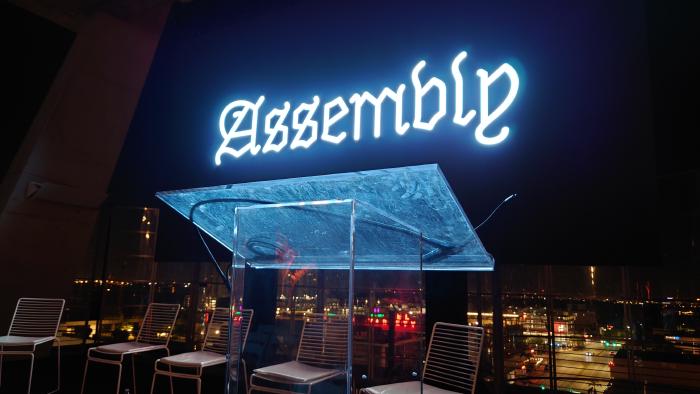A Sacred Space for the Digital Stage

“Explain to me why you think the world needs streaming digital theatre.” – I stumble for words, but after two blinks, I proceed to explain why it’s important.
I heard this question more than once at Assembly, the Urbit software conference this year in Miami Beach, but not nearly as often as I expected.

Yes, there was still a line for the men’s room and not the women’s room. That’s a problem for every tech conference. Urbit is not flawless, but there seemed to be more women than I usually see at tech conferences there.
The political leanings and identities ran the gamut as well, which coming out of LA was a surprising challenge for me. But I like to mix it up and get other’s perspectives so long as others are willing to hear me out too. I even expand my own understanding that way, when there’s a baseline of friendship at play.

- Data Ownership – You own your digital life, and no one has access except that you allow them. You own your digital art. It doesn’t belong to the companies you use to create or share your works. It will not be looked at or snooped by advertising algorithms preying on you or your hard-cultivated audience.
- Calm Computing – The community values creating new things without every app on your device competing for your eyeballs with notifications or “you might also like…” features. The core team has even said they want Urbit to become increasingly boring, so that it’s a firm foundation to bring your own excitement.
- Private Communities and Sacred Spaces – Because of its technical structure that allows for private data ownership, whole Urbit communities can be private when they want to be. Urbit leans into the cringe of private community with publications like “How to Create Your Own Secret Society” but in fact, private societies, sacred spaces, are essential nurseries to new artistic ideas. You won’t practice as genuinely if you know it all gets logged and analyzed by AI in a server farm somewhere, or is viweable by the public. As Peter Brook might have said, the theatre needs to be a sacred space. Sacred Spaces can’t be mundane-public. A person is changed upon entering them. By definition, a sacred space needs boundaries between itself and the mundane-public. Urbit allows this.

~fabfyn-dansef, for example.
Your planet carries a reputation, so even if you’re pseudonymous, you can’t be too big a jerk without the natural human consequences. Also planets are limited in supply. Together the reputation and scarcity of planets limits trolling, bots, vitriol, and the like. Imagine a planet as digital real estate.
You own your planet, so it’s a one-time purchase, not a subscription. And at the time of this writing, a planet costs about $10 or $20. Like real estate, Planet prices fluctuate according to demand. It takes effort to set your planet up, but it’s getting better and easier all the time.

If you’re thinking about how Private Societies and Secret Data could be abused, I am too. And Urbit’s core development team has put significant thought into the design to prevent abuse. But they will not use a terms of service contract or policy moderation to enforce safety.
Instead, they’re relying on the strength of the community and the architecture of the network itself to curb abuse. Free speech, private speech, is what Urbit offers, after all.
Disaster scenarios and how to prevent them is an open topic of discussion in the community. But the idea of a truly private digital rehearsal space is very compelling.

what’s its reason for living?
it’s such a large world
A private space is, after all, exactly what a theatre or a rehearsal space is in the real world. We don’t have an adequate digital version of one of those, and we need a good one to bring long form theatre and film to life.

“Urbit fixes this.” Urbiters

